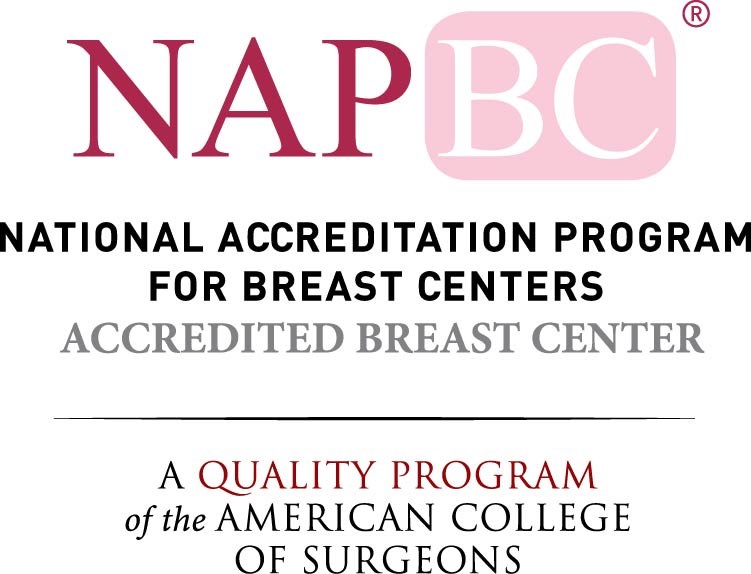Preventive Screening Guidelines
Cancer Screening Guidelines
Schedule an appointment with your primary care provider
Breast Cancer:
- AGES 15-39: Women should report any breast changes promptly to their health care provider. Breast self-exam (BSE) is encouraged for women starting at age 21. Clinical breast exams (CBE) should be a part of a periodic health exam every three years for women in their 20's and 30's.
- AGES 40-45: Women with no personal or family history of breast cancer or genetic mutation, have the option to begin annual screening mammography. Clinical breast exam every year with monthly breast self-exam.
- AGES 45-54: Women should begin annual screening mammography. Clinical breast exam every year with monthly breast self-exam.
- AGES 55: Women can switch to a mammogram every other year or continue with annual screening with clinical breast exam and monthly breast self-exam.
- Women should continue with screenings as long as they are in good health.

The American Cancer Society recommends that some women — because of their family history, a genetic tendency, or certain other factors — be screened with MRI in addition to mammograms. (The number of women who fall into this category is small: less than 2% of all the women in the US.)
Talk with your doctor about your history and whether you should have additional tests at an earlier age.
Lung
- 50-80 years of age
- In fairly good health and no symptoms of lung cancer.
-
Have at least a 20 pack-year smoking history AND either still smoking or have quit smoking within the last 15 years.
- Pack - year = number of packs per day x number of years smoked
- Screening is done annually with a low-dose CT scan of the chest. If you meet the criteria above, talk with your doctor to see if screening is right for you.
Prostate Cancer:
Starting at age 50, men should talk to a doctor about the pros and cons of testing so they can decide if testing is the right choice for them. African American men and men who have a father or brother who have had prostate cancer
before the age of 65, should have this talk with a doctor at age 45. Men at high risk (multiple family members diagnosed with prostate cancer before age 65) should have this talk with their doctor beginning at age 40.
*If you decided to be tested, you should have a PSA blood test with or without a rectal exam.
PROSTATE
Starting at age 50, men should talk to a doctor about the pros and cons of testing so they can decide if testing is the right choice for them. African American men and men who have a father or brother who have had prostate cancer before the age of 65, should have this talk with a doctor at age 45. Men at high risk (multiple family members diagnosed with prostate cancer before age 65) should have this talk with their doctor beginning at age 40.
*If you decided to be tested, you should have a PSA blood test with or without a rectal exam.
Skin
The AAD recommends that everyone perform regular skin self-exams to detect skin cancer early, when it's most treatable. Individuals that have a history of BCC or sec, should receive a whole body skin exam once a year to evaluate for future skin cancers. Those who notice any new or suspicious spots on their skin, as well as anything changing, itching or bleeding, should see a board-certified dermatologist.
Colorectal Cancer & Polyps:
AGE 45 -76: Beginning at age 45 (qualified recommendation) age 50 (strong recommendation) both men and women should follow one of these testing schedules:
- Flexible sigmoidoscopy every 5 years/ or
- Double contrast barium enema (DCBE) every 5 years/ or
- Colonoscopy every 10 years, or
- CT colonography (virtual colonoscopy) every 5 years/ or
- CT colonography (virtual colonoscopy) every 5 years*
-
Yearly fecal occult blood test. If positive, colonoscopy should be done.
- Screenings for individuals age 76-85 should be based on patient preferences, life expectancy, health status and prior screening history.
- Screenings for individuals over the age of 85 are discouraged.
If you are having active gastrointestinal issues please schedule an appointment with Baptist Medical Group - Gastroenterology or if you need to establish care with a primary care provider please book your appointment on line at EasySchedule.com.
The American Cancer Society recommends that some people be screened using a different schedule because of their personal history or family history so talk to your doctor about which test and schedule is best for you.
Beginning at age 50, both men and women should follow one of these testing schedules:
- Tests that find polyps and cancer
- Flexible sigmoidoscopy every 5 years*, or
- Colonoscopy every 10 years, or
- Double-contrast barium enema every 5 years*, or
- CT colonography (virtual colonoscopy) every 5 years*
- Yearly fecal occult blood test (gFOBT)*
* If the test is positive, a colonoscopy should be done.
The American Cancer Society recommends that some people be screened using a different schedule because of their personal history or family history so talk to your doctor about which test and schedule is best for you.
The tests that are designed to find both early cancer and polyps are preferred if these tests are available to you and you are willing to have one of these more invasive tests.
Cervical Cancer:
- AGE 21-30: PAP test every 3 years with reflex HPV.
- AGE 30-65: women should be screened with an HPV test only every year, a PAP test only every 3 years, or a co-test (PAP and HPV combined) every 5 years.
- AGES 65+: Women who have had regular cervical cancer testing with normal results and women who have had a total hysterectomy, for reasons not related to cancer, should stop screening. Women with a history of a serious cervical pre-cancer should continue to be tested for at least 2 years after that diagnosis, even if testing continues past age 65.
- Women who have received the HPV vaccine should still follow the recommended screening guidelines.
Cancer Related Check-Ups
For people age 20 or older having periodic health exams, a cancer-related check-up should include health counseling about tobacco, sun exposure, diet and nutrition, risk factors, sexual practices, environmental and occupational exposures and examination for cancers of the thyroid, oral cavity, skin, lymph nodes, testes, and ovaries. Some people should be screened using a different schedule because of their personal history, family history or genetic profile. Talk with your doctor about your history and what screening schedule is best for you.
ENDOMETRIAL
At the time of menopause, women who are at average risk should be informed about the risk and symptoms of endometrial cancer and strongly encouraged to report any unexpected bleeding or spotting to their physicians.
HEAD & NECK CANCER
Conducting a head and neck self-exam is an opportunity for you to get to know your body and what’s normal for you. Repeating this exam monthly can help you identify any changes that should be examined by a doctor or dentist.
*These recommendations are based on the cancer screening guidelines provided by the American Cancer Society, the U.S. Preventative Services Task Force, and the American Academy of Dermatology. Some insurance companies may not recognize the most recent updates. Be sure to check with your insurance provider for coverage on screenings.
Baptist Health Care is honored to be accredited by the National Accreditation Program for Breast Centers. This designation demonstrates Baptist Cancer Institute’s compliance with its programmatic standards and its commitment to maintaining excellence in the delivery of comprehensive, patient-centered, high-quality care for patients with breast disease.

